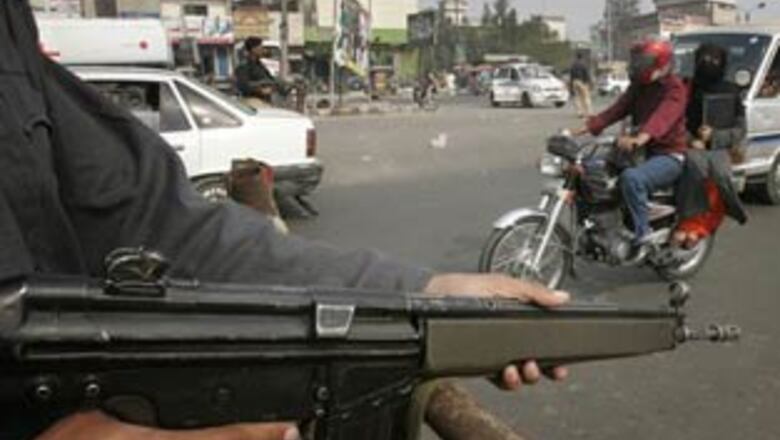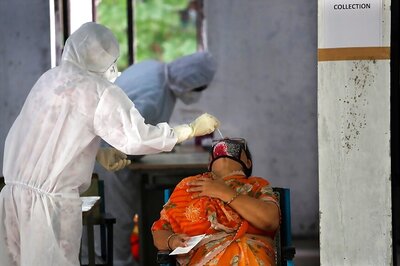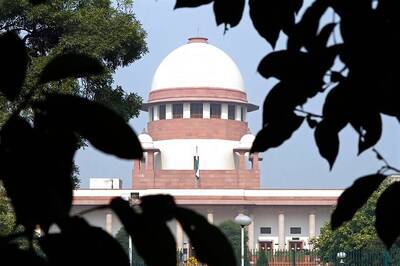
views
Pakistani authorities said on Friday they were making progress in the investigation of this week's attack on Sri Lanka's cricket team, with suspicion settling on home-grown militants.
Seven Pakistanis--six policemen and the driver of a bus carrying match officials--were killed in the attack in the eastern city of Lahore. Six Sri Lankan players and two team officials, including a British assistant coach, were wounded.
The governor of Punjab province, of which Lahore is capital, Salman Taseer said on Thursday authorities knew the identity of those responsible but he declined to elaborate. Police investigators said on Friday they were making progress but also declined to give details. The authorities have a range of groups as suspects for the attack on the cricket team.
Islamic militants
Pakistan has been struck by a wave of suicide attacks and bomb blasts by al Qaeda, the Taliban and Islamist militant groups linked to them. The Lahore attack was carried out by around a dozen gunmen. Many observers, including Punjab's Taseer, noted similarities with the attack on the Indian city of Mumbai last November.
India and the United States blamed Pakistan-based Lashkar-e-Taiba, a jihadi group fighting Indian rule in the disputed Kashmir region, for the Mumbai attack.
Many past attacks have been attributed to Tehrik-e-Taliban Pakistan (Movement of Taliban, Pakistan), a loose umbrella group of factions based in northwest Pakistan on the Afghan border. It is led by Baitullah Mehsud, an al Qaeda cohort.
He is suspected of organising the assassination of President Asif Ali Zardari's wife and former prime minister Benazir Bhutto in December 2007. Lashkar-e-Jhangvi (LeJ), a Sunni Muslim militant group, is regarded as one of al Qaeda's main fronts in Pakistan.
LeJ, made up of cadres largely drawn from Punjab, specialises in targeting minority Shi'ite Muslims but graduated to high-profile attacks like the suicide truck bombing of Islamabad's Marriott Hotel in September last year which killed at least 55 people.
Jaish-e-Mohammad is another Punjab-based militant group that has focused on fighting Indian rule in Kashmir, but there are signs its members have broadened their focus.
A Jaish connection was made to one of the assassination attempts on former President Pervez Musharraf in December 2003, and there was a Jaish presence at the Red Mosque uprising in Islamabad in 2007.
PAGE_BREAK
Jaish members have also surfaced in tribal areas bordering Afghanistan. Harkat-ul Jihad-e-Islami (HUJI) is another Islamist militant group fighting in Kashmir with al Qaeda links.
HUJI carried out the suicide attack that killed 11 Frenchmen and two Pakistanis outside Karachi's Sheraton Hotel. New Zealand's cricket team was staying at the hotel and promptly aborted its tour.
Baluch groups
Several guerrilla groups are waging a low-level insurgency in gas-rich Baluchistan province on the border with Afghanistan. Some have taken responsibility for small attacks in Lahore in the past. A group calling itself the Baluchistan Liberation United Front (BLUF) claimed responsibility for the kidnapping of an American working for the United Nations a month ago. The attack on the Sri Lankan team is on a vastly different scale to anything carried out by any Baluch group.
Sri Lanka's Tamil rebels
In Sri Lanka, official suspicion will fall on the Liberation Tigers of Tamil Eelam (LTTE), a rebel group close to military defeat in northern Sri Lanka and which has a long history of deadly guerrilla attacks. There has been no clear evidence the Tigers have operations in or links to Pakistan. The Tigers also don't have a history of hitting Sri Lankan targets outside the country, says Sri Lankan Foreign Minister Rohitha Bogollagama.
Some Pakistani hawks and nationalists, including a junior cabinet minister, blamed India for the attack in Lahore. But Information Minister Sherry Rehman, the principal government spokeswoman, denied there was any information of any Indian involvement, saying investigations were still underway.



















Comments
0 comment